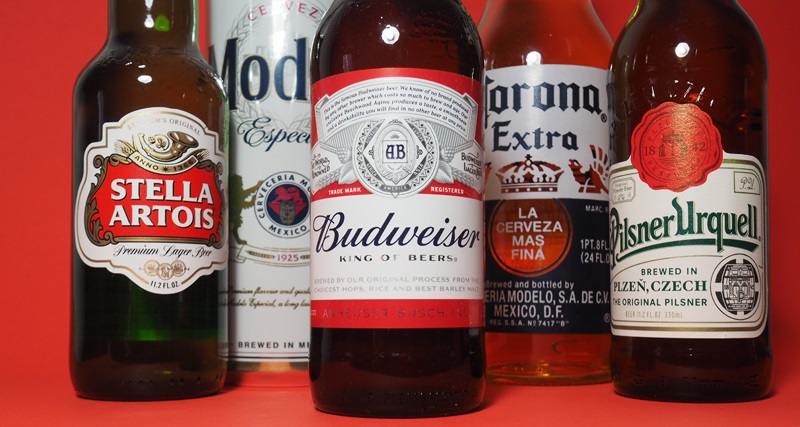Recapping the Business of Beer in 2016

(Photo by Jon Page)
Just over a year after announcing it, Anheuser-Busch InBev (A-B InBev) closed its deal to acquire SABMiller on Oct. 10, 2016. The more than $100 billion deal captured a great deal of the world’s attention on beer during that time as a top-10 (by some counts, top-5) global merger and acquisition transaction of all time. The world’s largest brewer bought the second-largest. The numerous moving pieces involved received a commensurate degree of scrutiny.
By the time it closed, A-B InBev agreed to sell off about 20 percent of SABMiller’s business. In many places, it made those deals to pass muster with various antitrust agencies. It kept the asset with perhaps the biggest upside: SABMiller’s significant stake in the emerging African beer market. Yet in the U.S., A-B InBev never attempted to buy SAB’s 58 percent stake in MillerCoors: It announced a separate deal to sell that stake for $12 billion to Molson Coors, which already owned the other 42 percent. That deal also closed on Oct. 10, giving Molson Coors complete control of MillerCoors. So, perhaps oddly, a comparison of U.S. market shares on Oct. 9 and Oct. 11 would turn up absolutely no change as a result of the deal.
RELATED: Mega-merger? How about no?
That didn’t allay concerns had by many, however. Industry members, leaders of their trade associations, state and federal lawmakers and beer drinkers all weighed in, including at a Senate subcommittee hearing last December. The deal could further threaten the independence of wholesalers and small brewers, leaders of the National Beer Wholesalers Association and the Brewers Association asserted. The U.S. Department of Justice investigated these and concerns over market access, raw ingredients and more for the better part of a year.
In July, the Justice Department released its consent decree, clearing the deal with conditions. The legal document laid out terms to which A-B InBev agreed to adhere in order to complete its transaction. They include extending the agency’s oversight of the company, which already needed approval for most deals to buy smaller U.S. brewers, for example. The Justice Department exercised that oversight over A-B InBev’s deal to buy Virginia-based Devils Backbone Brewing Co., announced in April. It will do the same for the company’s acquisition of Texas-based Karbach Brewing Co., announced in early November. Earlier in 2016, A-B InBev also bought SpikedSeltzer for its High-End Business Unit. And through the global company’s ZX Ventures, a private equity firm, it acquired top online homebrew supply retailers Northern Brewer and Midwest Supplies.
MillerCoors became more active on the mergers and acquisitions front, making a handful of quick successive announcements to take a bigger stake in Terrapin (of which it already owned 25 percent), as well as majority stakes in Hop Valley Brewing Co. and Revolver Brewing Co., via its Tenth and Blake unit. The other existing U.S. brewer that did multiple deals in 2016 was Lagunitas Brewing Co. It formed “partnerships” with Petaluma, California, neighbor Moonlight Brewing, Texas-based Independence Brewing Co. and Southend Brewery & Smokehouse in South Carolina. Compared with deals announced in prior years, most of these were for relatively small companies. The largest brewery to sell all or part of itself was Brooklyn Brewery, in which Japanese giant Kirin bought a 24.5 percent stake. Many foreign brewers, like Kirin, remain interested in expanding their businesses and investing in the U.S. craft segment. There could be many similar deals where this one came from.
Financial entities also expanded their ownership of U.S. brewers in 2016. Early in the year, Ulysses Management added to its prior purchase of Southern Tier Brewing Co. by acquiring a majority of Victory Brewing Co., forming a company it’s calling Artisanal Brewing Ventures. And the group backed by Fireman Capital Partners and led by Oskar Blues Brewery added Cigar City Brewing Co. to its arsenal of commonly owned craft brands. A number of other smaller breweries also completed transactions this year, with buyers varying from local media and restaurant companies to even-smaller breweries. An average of two deals per month hit industry headlines during the first 10 months of 2016. No single deal shifted much more than 0.05 percent market share between U.S. brewers. But taken together, this one massive deal and many smaller ones contributed to ongoing fundamental shifts in the U.S. beer industry.

Leave a Reply